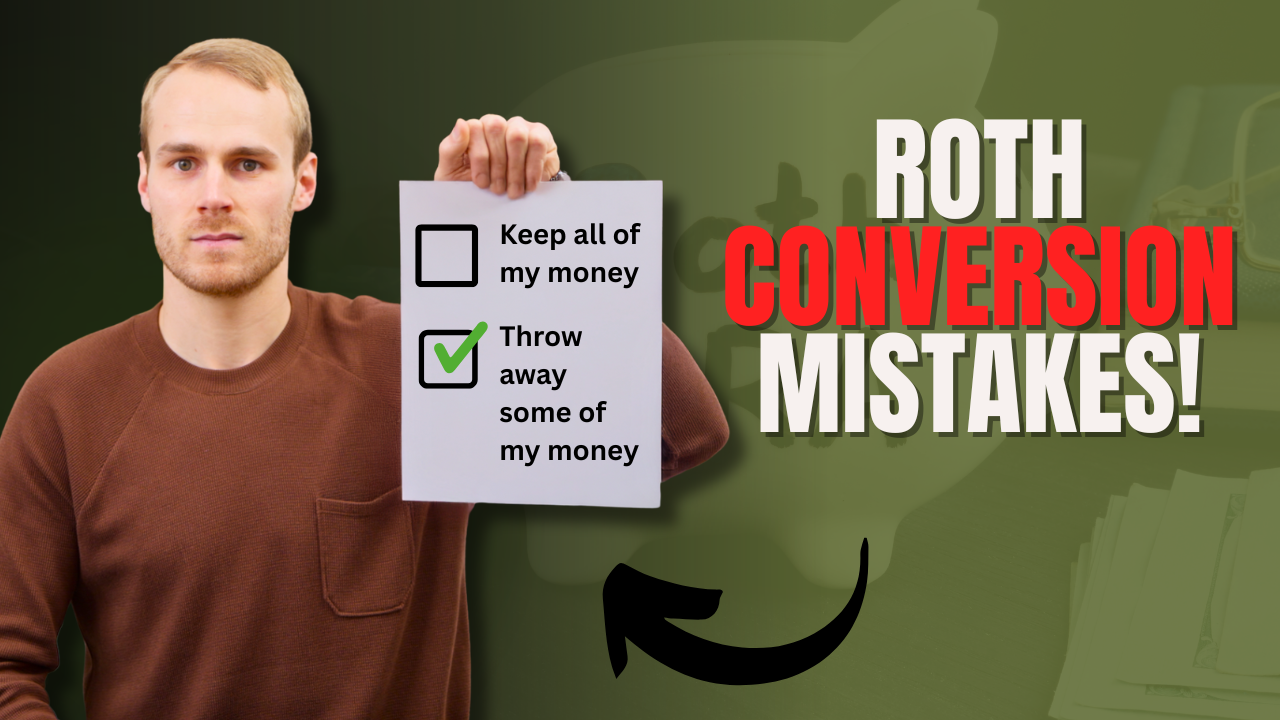Transcript:
Are you making costly mistakes with Roth conversions? While Roth conversions are one of the most powerful retirement tools out there, making them at the wrong time or under the wrong circumstances could end up costing you big time. Hi, I’m Hunter Brockway, founder of Boca Retirement Strategies. I’m here to help you retire stress-free, spending more, saving on taxes, and avoiding costly mistakes along the way. Today, we’re breaking down the biggest Roth conversion mistakes so you can maximize your retirement savings and avoid unnecessary tax surprises. First, let’s talk about why Roth conversions are such a widely used and highly revered strategy. For myself and for retirees everywhere, we pay the devil we know by converting you control how much and when you get taxed. Generate tax-free growth. Once the money’s in a Roth, it grows tax-free for life. Provide heirs with a tax-free legacy. Your heirs can inherit Roth accounts tax-free. Create flexibility for large purchases.
A Roth provides tax-free sources for big one-time expenses like dream vacations, medical bills, without triggering a tax tip. Fill a low tax bracket. As I always say, in for a penny, in for a pound. Filling your low tax bracket now could save you from paying higher taxes in the future. But here’s the catch. If you make these mistakes or convert under the wrong circumstances, Roth conversions can hurt you instead of helping. So let’s go through some of the common Roth conversion mistakes and when they may not make sense. Number one, assuming tax rates will always go up. If tax rates go down in the future, which is rare but possible, a Roth conversion you did today could end up costing you more in taxes than if you waited. Number two, believing your tax rate will be lower in retirement. Many people assume they’ll pay less than taxes during retirement, but that’s often not true. In retirement, your social security could count as taxable income.
You lose deductions you had during your working years like mortgage interest or dependent deductions. Medicare ERMA surcharges can push you into higher tax brackets. If you convert at the wrong time, you may accidentally pay more in taxes than necessary. Three, planning to leave money to charity. If you’re leaving money to a charity, don’t pay taxes on it by converting it to a Roth first. Charities don’t pay taxes, so there’s no need for you to either. Four, improper reporting or withholding taxes. Failing to properly report or withhold taxes on a Roth conversion could lead to penalties or even double taxation. Always make sure you’re working with a financial professional to get this right. Number five, running into Medicare ERMA surcharges. Converting too much during retirement could push you into higher income brackets, triggering Medicare surcharges. These surcharges can add hundreds or thousands of dollars to your premiums. Number six, blowing up ACA subsidies.
If you’re not yet on Medicare and relying on ACA subsidities for health insurance, a large ROC conversion could make your income too high to qualify for subsidities. That said, in some cases, it might still make sense to convert and pay the higher insurance costs. We’ve helped clients work through situations like this previously. 7. Not separating pre-tax and post-tax IRA contributions. If you’ve made after-tax contributions to your IRA, failing to properly separate those from pre-tax funds before converting can cause unnecessary taxes. Always track your IRA contributions carefully before making a conversion. 8. Violating the IRS’s 5-year rule. The IRS requires ROC accounts to be open for at least 5 years before you can withdraw earnings tax-free. Converting too late or taking money out too soon can result in penalties and taxes. 9. Withholding, rather than paying out of pocket, the taxes on a ROC conversion when under $59.50, leading to a penalty.
Take action to avoid Roth conversion mistakes. Roth conversions are an incredible tool and in most cases there’s a strong argument to make some conversions over the course of your lifetime. But timing and strategy are everything. The wrong move at the wrong time could just cost you more in taxes instead of saving you. Here’s what you should do. Create a multi-year tax plan that looks ahead and levels out your lifetime tax bill. Review every year whether a Roth conversion makes sense for you and your situation. And don’t forget to like this video and subscribe to our channel for more retirement planning tips. Bye.

